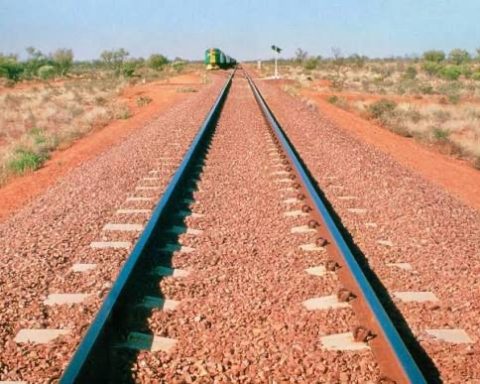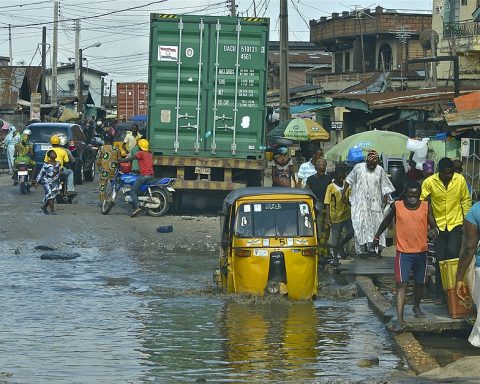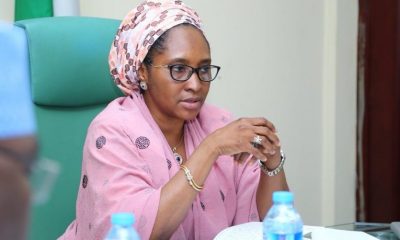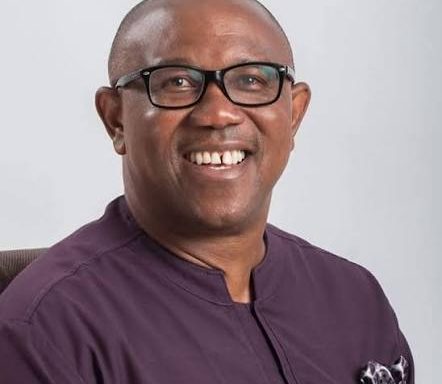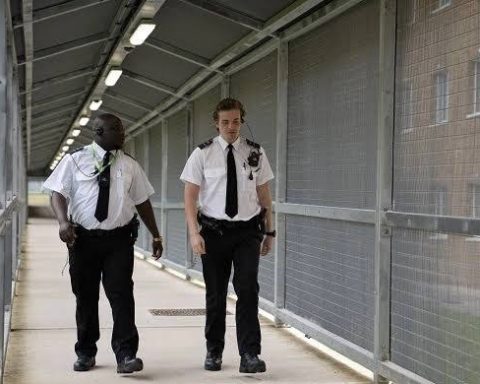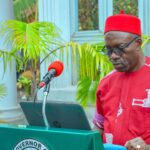The Federal Government has flagged off light rail development projects in Kaduna and Kano States, signaling a new phase in its transportation infrastructure drive aimed at boosting regional mobility and economic productivity in Northern Nigeria.
Minister of Transportation, Saidu Ahmed Alkali, made the announcement while speaking at an infrastructure-focused dialogue during a two-day interactive session hosted by the Sir Ahmadu Bello Foundation in Kaduna.
Join our WhatsApp ChannelAlkali disclosed that the light rail initiatives are being supported through the Ministry of Finance Incorporated (MOFI), which is spearheading strategic infrastructure investments as part of the President Bola Tinubu administration’s Renewed Hope Agenda.
“This is more than just a transportation project; it is about unlocking the economic potential of our northern cities and creating jobs,” Alkali said.
The minister also highlighted the progress of the Renewed Hope Cities (RHC) and Estates Project, revealing that 3,112 housing units have been completed in Abuja, while Kano has delivered 1,500 units, alongside an additional 500-unit estate. Other states, including Sokoto, Gombe, Yobe, Katsina, Nasarawa, and Benue, have each seen the completion of 250-unit estates under the scheme.
According to Alkali, these projects are expected to create over 250,000 jobs nationwide, with construction workers earning an average monthly salary of ₦150,000. The initiative is also expected to stimulate the development of building material hubs and attract more than ₦70 billion in private sector investment.
In the railway sector, the minister reported that 53 percent of the standard gauge Kaduna–Kano railway modernization project has been completed. He added that the Kano–Maradi line, linking Nigeria with neighboring Niger Republic, is 61 percent complete. Meanwhile, a 61-kilometre section of the Port Harcourt–Maiduguri railway has been completed and is already in use.
READ ALSO : Dangote Cement’s Profit Rises By 230% After Cutting Costs
Port Harcourt Refinery Not For Sale—NNPC
The light rail projects mark a significant shift in Nigeria’s transportation strategy, with the Northern region often sidelined in past rail development plans now seeing increased focus. While Lagos and Abuja have witnessed some advancement in urban rail systems, cities like Kaduna and Kano have long relied on overstretched road transport networks.
Experts say the introduction of light rail could help decongest traffic, reduce transit times, and open new corridors for trade and mobility in the region. It also aligns with Nigeria’s broader infrastructure blueprint aimed at regional connectivity and urban modernization.
The Ministry of Finance Incorporated, which is backing the projects, has recently transitioned into a more proactive investment management agency, enabling the federal government to use its assets more strategically in driving growth.
The Renewed Hope Cities project, championed by President Tinubu, is one of the administration’s most ambitious efforts to tackle Nigeria’s estimated 28 million housing deficit. With thousands of new units completed and more under construction, the initiative is not only targeting housing needs but also offering employment to thousands across multiple states.
Stakeholders at the event in Kaduna hailed the government’s integrated approach, combining transport, housing, and job creation into a unified development strategy for the North.
The interactive session, which brought together policymakers, traditional leaders, and development experts, continues in Kaduna as conversations on infrastructure deepen.
Amanze Chinonye is a Staff Correspondent at Prime Business Africa, a rising star in the literary world, weaving captivating stories that transport readers to the vibrant landscapes of Nigeria and the rest of Africa. With a unique voice that blends with the newspaper's tradition and style, Chinonye's writing is a masterful exploration of the human condition, delving into themes of identity, culture, and social justice. Through her words, Chinonye paints vivid portraits of everyday African life, from the bustling markets of Nigeria's Lagos to the quiet villages of South Africa's countryside . With a keen eye for detail and a deep understanding of the complexities of Nigerian society, Chinonye's writing is both a testament to the country's rich cultural heritage and a powerful call to action for a brighter future. As a writer, Chinonye is a true storyteller, using her dexterity to educate, inspire, and uplift readers around the world.


